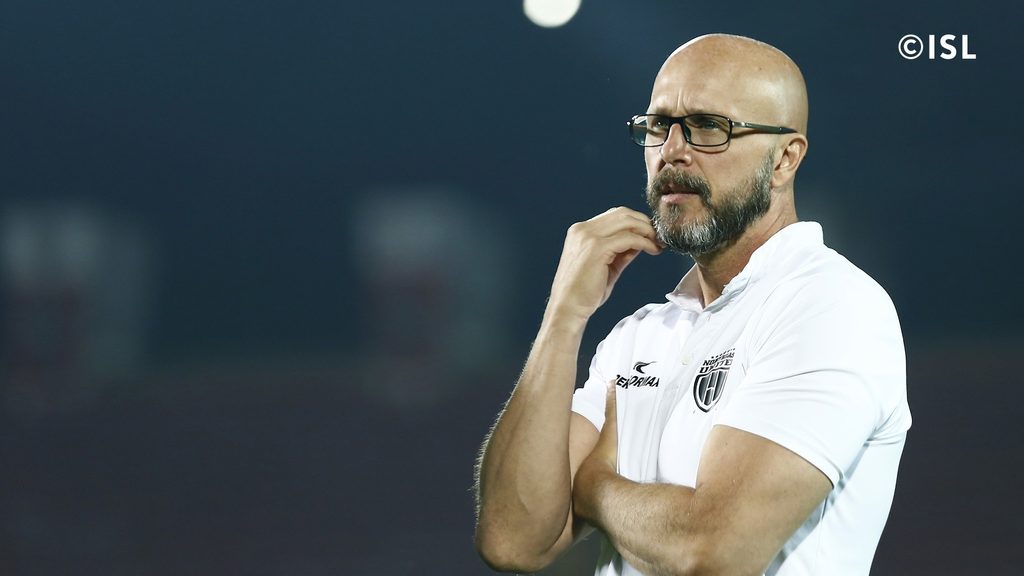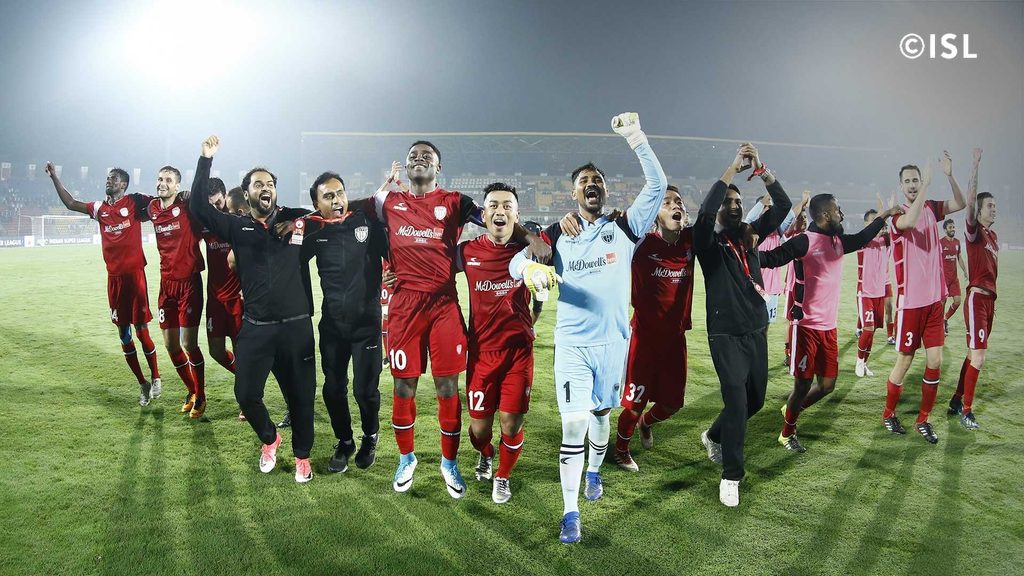In appreciation of Hero ISL’s most charismatic personality - Eelco Schattorie
The grandeur and scale of a competition as big as the Hero Indian Super League (Hero ISL) enables a larger bandwidth for new stories to evolve in.

The grandeur and scale of a competition as big as the Hero Indian Super League (Hero ISL) enables a larger bandwidth for new stories to evolve in. Its latest edition is a sensational testament to that very fact as many new faces, both from the playing and managerial staff emerged as serious contenders to the more established names in the country’s football dynamic. And among them features a certain Dutchman from NorthEast United FC.
Eelco Schattorie had been a part of the Highlanders management for the last two seasons but was appointed the head coach only at the start of the 2018-19 campaign. The team he inherited was not an ideal one, having finished at the bottom of the table in Hero ISL 2017-18. They were short of goals, confidence and above all, an identity, making Schattorie’s job quite arduous even before it began.

That, however, did little to faze the 47-year-old. At his unveiling, which was more than seven months ago now, Schattorie promised his intentions and gave a glimpse at what was to come.
He said, “Firstly, I would like to thank the management for giving me the opportunity of becoming the Head Coach of NorthEast United. I am ready to "take the bull by the horns" as I always like to say! I'm not a very diplomatic person. I always like to work hard and make things happen on the field. The only thing that I care about is my players, the club and the supporters. Hopefully, it's going to be a beautiful season and I'm looking forward to meeting the fans back in Guwahati and let’s make it a beautiful journey!"
And so, he did! Backed by the signings of Bartholomew Ogbeche, Federico Gallego and Mislav Komorski among others, Schattorie’s NorthEast took to the field against FC Goa in their first match of the season and held them to a 2-2 draw. In the next two fixtures, the Dutchman masterminded the downfall of both of Hero ISL’s former champions - ATK and Chennayin FC.
Signs of the spirit within the group was there for all to see towards the end of November when after going a goal down against Kerala Blasters FC, substitute Juan Mascia helped Schattorie and Co. grab two late goals to win the tie by the scruff of their necks. Teams were finding it difficult to cope with the 47-year-old’s flexible tactics and steady team selections, based entirely on a progressive style of play, which focused on retaining possession and remaining compact even when out of it.

His toughest test though would come in December. Playing four matches in 15 days, Schattorie’s thin squad showed their vulnerable side as they drew three and lost 5-1 to Goa in the other fixture to end the first half of the season in a perilous position.
The January window did very little to ease some of the burden on the Dutchman, who became more and more critical of the lack of backing in the transfer market at each press conference. Agitation and a sense of frustration reflected off him, but he did well to keep those emotions away from his players. Solid and vital wins throughout February and early March pushed the Highlanders through to the semi-finals for the first time in their history.
“Success always has many fathers” but only the players who made this happen deserve all the credit. Thank you guys for letting me be part of this success and hope we can extend it a little more ❤️❤️❤️❤️🙏🙏🙏🙏 https:/t.co/e8d24M2vNG
— Eelco Schattorie (@ESchattorie) February 24, 2019
No need to say more. Hard hard hard work and we made it pic.twitter.com/umR2EIOGFh
— Eelco Schattorie (@ESchattorie) February 23, 2019
Facing a better-equipped Bengaluru FC in the first leg of the semi-final, Schattorie in his own way, somehow managed to not let the lack of quality centre-backs tell as Highlanders took a 2-1 lead to Bengaluru, where they would finally succumb in the last phase of the match.
While the season may have ended in a 3-0 defeat, Schattorie can hold his head high. The adversities facing him and the budget allotted to him was quite limited, to put it mildly. His use of Rowllin Borges transformed the perception of the midfielder. Even Sunil Chhetri admitted after his side’s title triumph that Carles Cuadrat and Co. would have loved to avoid facing Schattorie’s arsenal in the semi-final: a glaring attestation to the Dutchmen’s success.
Let others praise you. Who better to do so than the one who actually can. Thank you Sunil for that compliment @StarSportsIndia @StarFootball @Goal_India @NEUtdFC @IndSuperLeague @IndianFootball @chetrisunil11 pic.twitter.com/Z4Fwe3KXUq
— Eelco Schattorie (@ESchattorie) March 22, 2019

























